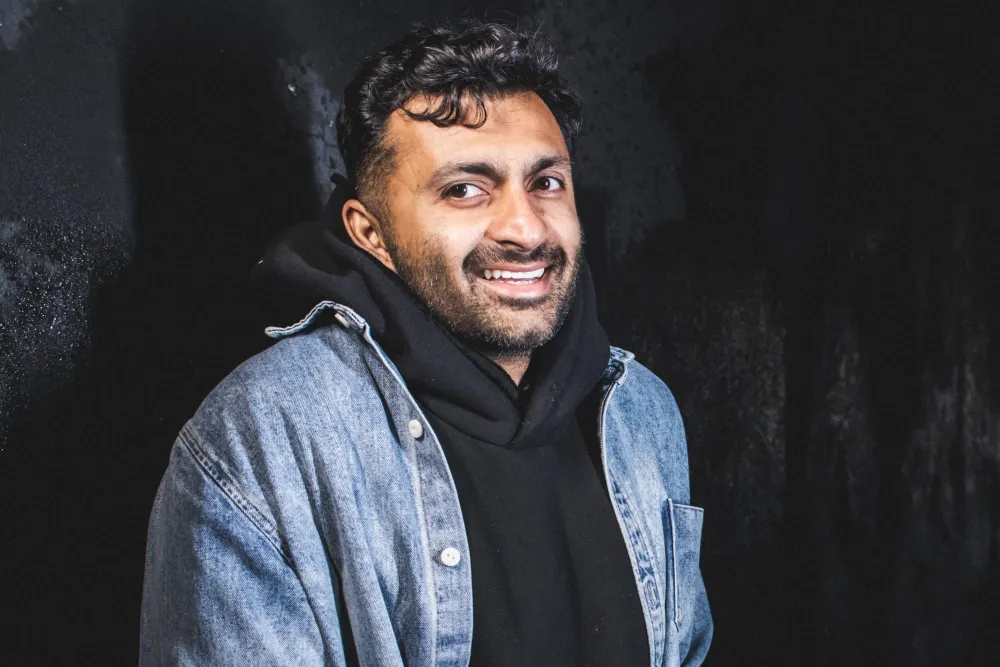Abstract
This article examines the significance of unrecorded standup comedy as a form of art that exists purely in the moment. Unlike recorded performances, which often cater to digital audiences and endure social media scrutiny, unrecorded standup thrives in its transient, shared connection between comedian and audience. Drawing from insights by prominent minority comedians, scholars, and experts, this paper explores how live, unfiltered comedy serves as a medium for social critique and personal expression, free from the pressures of online backlash, network censorship, and the need to please social media metrics. The preservation of unrecorded standup is essential to maintaining the authenticity, spontaneity, and social critique that define standup comedy as a unique and necessary art form.
Introduction
In a world of constant digital documentation, live, unrecorded standup comedy remains one of the few sanctuaries of unfiltered expression. Standup has always offered comedians a space to explore controversial topics, confront societal taboos, and express perspectives that challenge mainstream narratives. However, the rise of social media, digital scrutiny, and cultural backlash has led to self-censorship among comedians, as each joke and interaction risks being immortalized online.
In contrast, unrecorded standup comedy preserves the art form’s authenticity. Free from cameras and social media pressures, comedians performing live and unrecorded are empowered to speak directly to their audience, creating a shared experience that lives only in that moment. This paper highlights the importance of unrecorded standup comedy as a powerful form of connection, risk-taking, and cultural critique.
The Fleeting Power of Unrecorded Performance
Unrecorded comedy exists only in the shared experience of a specific place and time, fostering a direct connection between the comedian and the audience. This temporary nature is one of unrecorded comedy’s most compelling aspects, creating an atmosphere where laughter, reactions, and even silence form a real-time dialogue central to the live comedy experience.
Psychologist Rod A. Martin explores this dynamic in The Psychology of Humor: An Integrative Approach, discussing how “social facilitation” amplifies laughter within a group setting. The presence of others intensifies reactions, making the experience of unrecorded comedy unique and unreproducible. This ephemeral connection creates an atmosphere that is inherently altered by recording and digital dissemination, where the pressure to appeal to a broader online audience often mutes the intensity and vulnerability of live, unfiltered comedy.
Minority Comedians on the Magic of Ephemeral Comedy
For many minority comedians, unrecorded live performances represent a vital space to share unfiltered truths. Standup comedian Ali Wong has spoken about the freedom of unrecorded shows, emphasizing that these performances allow her to explore culturally specific and deeply personal material without fear of being taken out of context online. “When you’re not worried about how a joke will look or sound later, you’re free to experiment,” she explained in an interview. Wong values the opportunity to connect with her audience in a way that transcends digital boundaries, knowing that what is shared in the room stays in the room.
Similarly, Hasan Minhaj, whose comedy often revolves around political and social issues, has emphasized the importance of unrecorded performances as a place to address sensitive topics candidly. In live shows, Minhaj has discussed how the freedom of unrecorded performance allows him to go deeper into controversial topics, saying, “The room is our sanctuary, and that’s where we can speak honestly without the weight of a permanent digital record.” For Minhaj, unrecorded standup fosters a level of trust between comedian and audience that enables him to take risks with his material.
Freedom from Social Media and Network Pressures
The commodification of comedy for digital platforms and streaming services has placed substantial pressure on comedians to perform in a way that aligns with network expectations and social media appeal. This shift has led to self-censorship among comedians, who often avoid topics that may provoke online backlash or lead to “cancelation.” Live, unrecorded shows, however, remain untouched by these pressures, allowing comedians to perform for those physically present rather than for an invisible online audience.
Comedian and actor Chris Rock has discussed how performing live, unrecorded shows enables him to engage with edgier material without fear of being scrutinized online. In an interview, Rock explained that he enjoys performing in settings where he can “push boundaries without the worry of it coming back to haunt [him]” because these live settings create a unique and personal connection with the audience that does not translate to recorded media.
This freedom from network and social media expectations empowers comedians to explore themes of race, culture, and identity in a more profound and uninhibited way, reconnecting with standup’s roots as a platform for marginalized voices to speak truthfully about their experiences.
Comedy as a Safe Space for Cultural Critique
For many minority comedians, unrecorded comedy provides a space to address social and cultural issues that are often left unspoken. When the performance is not recorded, comedians are free to critique societal norms, poke fun at cultural expectations, and challenge dominant narratives. This tradition of unrecorded standup as a form of cultural critique can be traced back to the work of comedians like Richard Pryor and Eddie Murphy, whose live shows tackled race, politics, and social inequality head-on. Today, unrecorded performances remain an essential platform for comedians to address similar themes.
In his book Laughing Matters: Humor and Culture, Lawrence Mintz discusses how comedy has historically served as a “subversive voice,” particularly for marginalized communities. According to Mintz, unrecorded standup offers a space for comedians to explore taboo topics without the burden of public accountability, allowing them to highlight injustices and hypocrisies through humor. This freedom is crucial for comedians from underrepresented backgrounds, who often face additional scrutiny when addressing issues of race, religion, and culture.
The Intimate Relationship Between Comedian and Audience
Unrecorded performances foster a unique intimacy between comedian and audience, encouraging comedians to take risks and share personal experiences that they might withhold in recorded settings. This relationship is especially important for comedians who tackle themes of identity, as the trust developed in these live, unrecorded environments enables them to address sensitive subjects more candidly.
Scholar John Limon describes this relationship in Stand-Up Comedy in Theory, or, Abjection in America as a “dialogue of vulnerability,” where comedians expose their inner thoughts in exchange for the audience’s trust and laughter. According to Limon, this dialogue is inherently altered in recorded comedy, where the risk of perpetual documentation can dissuade comedians from exploring contentious topics. In contrast, unrecorded shows allow comedians to delve into subjects with an honesty that would be impossible under the scrutiny of a recorded medium.
The Impact of Cancel Culture on Comedic Freedom
Cancel culture has intensified the pressure on comedians, especially those from marginalized communities, to avoid potentially controversial topics. Social media amplifies backlash, leaving comedians vulnerable to criticism and calls for accountability, often without context. For comedians such as Mo Amer, whose comedy explores the complexities of being Palestinian-American, unrecorded performances offer a refuge from these pressures. Amer has explained that performing without recording devices allows him to “really go there” with his jokes, tackling sensitive issues with a freedom that would be impossible in a recorded format.
As Amer’s experience illustrates, unrecorded standup creates a space where comedians can engage with subjects that are often censored or softened for digital audiences. This freedom is especially important for comedians from minority backgrounds, as it allows them to use humor to address systemic issues and personal experiences in a way that fosters understanding rather than conflict.
Conclusion: Preserving the Integrity of Unrecorded Comedy
In an age where digital platforms increasingly shape the expectations of comedy, unrecorded standup remains a crucial bastion of free expression. For comedians from minority backgrounds, it is a place to address cultural, social, and political issues honestly, without fear of judgment or reprisal. The fleeting nature of these performances creates a special bond between comedian and audience, allowing for a shared vulnerability and spontaneity that cannot be replicated in recorded media.
As comedians like Ali Wong, Hasan Minhaj, and Mo Amer demonstrate, the unrecorded show fosters a level of intimacy and freedom that is essential to standup’s role as a platform for social critique and self-expression. By preserving these spaces, we uphold the integrity of comedy as an art form that challenges, questions, and connects people in ways that are becoming increasingly rare in the digital age. Unrecorded standup is more than just a performance; it is a powerful moment of collective experience, a refuge where laughter, honesty, and risk coexist.
References
- Vulture. (2020). “Hasan Minhaj Reflects on Candid Comedy in Unrecorded Shows.”
- Martin, R. A. (2007). The Psychology of Humor: An Integrative Approach. Elsevier.
- Mintz, L. E. (2022). Laughing Matters: Humor and Culture. University of Chicago Press.
- Limon, J. (2000). Stand-Up Comedy in Theory, or, Abjection in America. Duke University Press.
- The Guardian. (2020). “John Mulaney Discusses Performing Without Cameras.”
- Rolling Stone. (2019). “Chris Rock on the Freedom of Live, Unrecorded Shows.”
- The Atlantic. (2019). “Ali Wong on Vulnerability in Unrecorded Comedy.”





